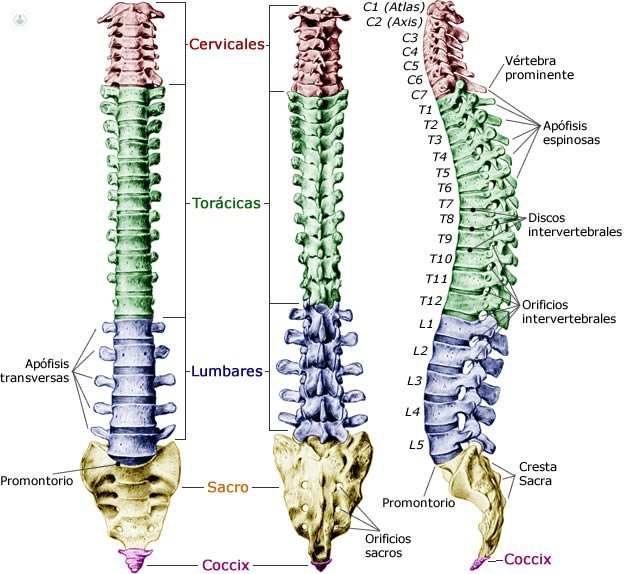What you should know about spine surgery
Written by:Spine surgery is indicated in different cases, most notably the degenerative disease which is the most frequently, traumatic, tumor with benign and malignant, vascular and vascular malformations.
There are two types of spinal surgery:
-
 Which it affects bone, disc and ligamentous structures. The specialized neurosurgeons and orthopedic surgeons perform column
Which it affects bone, disc and ligamentous structures. The specialized neurosurgeons and orthopedic surgeons perform column - Surgery of spinal cord and nerve roots, along with the wrappers thereof. The neurosurgeons perform alone.
The most common condition is degenerative with herniated discs and spinal stenosis.
Technique spinal surgery
The technique of spinal surgery varies depending on the condition being treated and the specialist who will do it. For example, disk hernia operation does not require such skill or detail as required by the removal of a tumor or an intramedullary vascular malformation.
As a specialist, neurosurgeon , compared with the specialized column trauma, usually more conservative and careful, because during their training has had to get used to working with surgical microscope, small and deep fields and with many vital structures around it.
And postoperative treatment of spine surgery
Regarding surgery for herniated discs and spinal stenosis, which is the most common, only 20% of patients should have surgery. The remaining 80% can relieve their symptoms with treatment with painkillers, anti-inflammatories, muscle relaxants and rehabilitation measures.
Currently spinal surgery that is performed with microsurgical technique can be performed without general anesthesia and the patient can be discharged from the hospital a few hours after being operated, as we have proved in the Ambulatory Surgery Program conducted in Hospital Universitario La Paz in the last two years.
Risks of Spinal Surgery
The risks of spinal surgery depend on the type of pathology. When it comes to degenerative disease risks are low, but always keep in mind that a nerve root or rupture of meninges can leave a sequel in the patient having to drag all his life.
On the other hand, when it comes to tumor or vascular disease, the risks are increased as a core damage may become irreversible.


